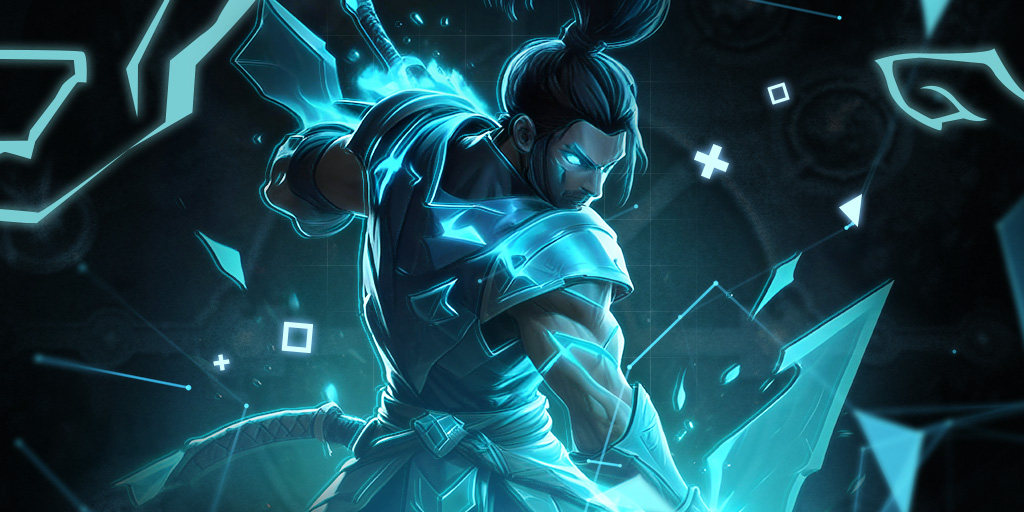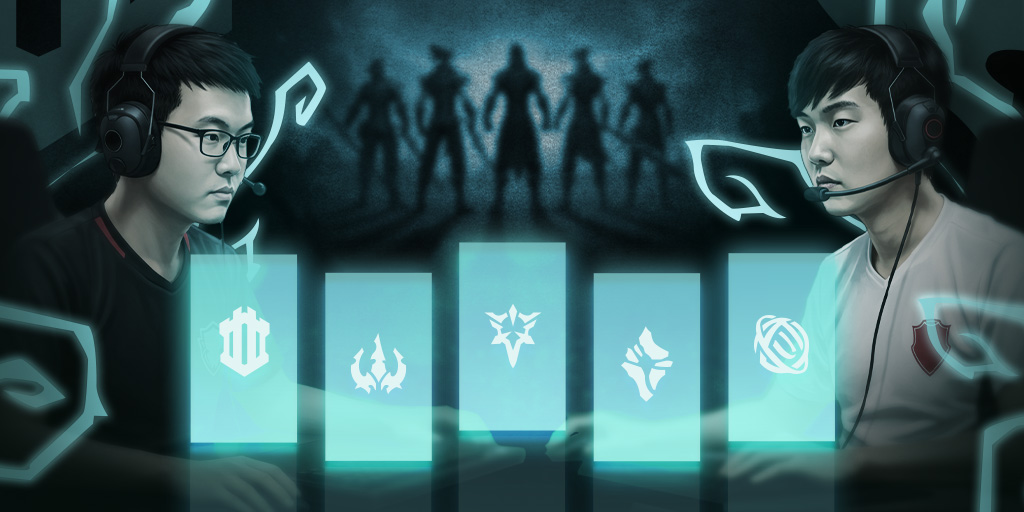In his latest feature for Pinnacle, the Esports Historian “Thorin” takes a look at the relationship between coach and player; contrasting legendary LoL player “Faker” and his coach “Kkoma” with legendary football quarterback Tom Brady and his long-time coach Bill Belichick.
Ask most fans or experts and Mid-laner Lee "Faker" Sang-hyeok and quarterback Tom Brady are, in consensus, the Greatest of All-Time (G.O.A.T.) in their disciplines (League of Legends and American football respectively). Thanks to their success, their organisations can lay claim to the status of greatest as well. No man wins alone in a team sport, though.
Not only have the two each won the most World Championships in their field but they also share the distinction of being closely tied to their similarly massively successful and decorated coaches, Kim "kkOma" Jeong-gyun and Bill Belichick, in the number of World Championships gained. In fact, of the 10 titles between the two players, only one (Brady's most recent), was won without the aforementioned coaches.
While Brady got one ahead of Bill Belichick, “Faker” finds himself in the opposite position, as it is his former coach “Kkoma” who is now coaching the team some consider the favourite for the next World Championship – DAMWON - who still have the reigning World Championship core of last year.
If “Kkoma” can secure the lead in World Championship titles, one can be assured talk will rise up about "who made who" and how pivotal “Faker” and “Kkoma” were in each other's careers. Certainly, that topic was everywhere after Brady took the lead over his old coach and many a drastic conclusion was drawn and projected back on history.
the pinnacle cup III is here
Find out more about the latest groundbreaking esports event in November by Pinnacle!
Find out more“Faker”'s Peak
Between the two competitors, “Faker” is arguably the better player in the context of his individual form in comparison to his peer group. Despite the total career form of players like Invictus Gaming's “Rookie” and RNG great “Uzi”, few attempt to make the claim that these players were actually better than “Faker” over his career (though there is interesting ground to be uncovered in that direction). No, Faker has held sway over the game as its greatest player for most of his career. Being as strict as possible, he was likely only the clear-cut best player for one entire year (2013) and has had intermittent periods since in which he performed at a similar level (2015 springs to mind).
Even as Top-laner Jang “MaRin” Gyeong-hwan was awarded the MVP in the dominant 2015 Worlds campaign that marked “Faker”'s second World Championship title, many pointed to “Faker”'s unique use of the champion Ryze - on which he was 5:0 in a tournament it was barely picked in and certainly not won with by anyone else - and his "pressure vacuum" style of play (being effectively self-sufficient without the help of the Jungler) that ensured T1 seemed unbeatable.
For the 2016 World Championship though, the tournament seemed to be much more of a team effort and coaching decisions - such as how the veteran and rookie Junglers were rotated - played a key role.
Brady's development
Tom Brady has not won as many regular-season MVPs as outsiders would likely expect, especially when contrasted with key rival Peyton Manning's record of five. Nor was he named first-team all-pro in the NFL that often, another area where he lags far behind the aforementioned rival. It's not that a case for players other than Brady is difficult to make but more that it is unpopular and strays too far from the World Championship ring count narrative for most analysts to feel comfortable.
Despite his reputation, Brady was not a dominant player over all of the World Championship play-off campaigns he was a part of either. In his early years, he stacked three Super Bowl rings in four years by being largely a game manager - a quarterback tasked with not making mistakes that negatively impact the team's chances of winning and thus allowing other players in the team to win the game.
In his early years, he stacked three Super Bowl rings in four years by being largely a game manager - a quarterback tasked with not making mistakes that negatively impact the team's chances of winning and thus allowing other players in the team to win the game.
Of course, that can be a reductive line of thinking, as playing quarterback in the NFL is essentially about doing exactly that, unless the quarterback in question is a phenomenal thrower of the ball and/or has to make risky throws to poor talent to have a chance at victory. Nonetheless, the Brady many will think of in recent times was not really born until after his first three Super Bowl wins. Later, as the team added strong offensive players to their already established defense, Brady emerged as a league MVP and a player whose touchdowns now put the team over the victory line.
In the latter part of his career, effectively the last decade, he has even won some Super Bowls where he had key moments defensively but it was his scoring that was so famously significant to beating the likes of the Seahawks and Falcons. What makes Tom Brady's career narrative tricky is that he was the player many dismissed early on but eventually he did manifest some of the skills many of his most diehard supporters had claimed he displayed all along.
“Kkoma”'s subtle impact
While “Faker” won many World Championships as the star player in T1, “Kkoma” made use of names like “Bang”, “Wolf”, “Huni”, and “Blank” at a time when few expected these players to be players who could win World Championships. Playing with “Faker” certainly might have helped (as the lack of similar level Championship wins for those players without “Faker” suggests), but their coach was involved in bringing those players in, putting them into the starting line-up, and coaching them to play the team's iconic come-from-behind, vision-control-based style.
“Kkoma”'s Jungling strategy - swapping veteran but mechanically-questionable former starter “Bengi” into important series when “Blank”, a skilled but at times unreliable rookie talent, was floundering - effectively won T1 a number of series they otherwise may have lost. “Faker” helped make some of these lesser names better, particularly the Junglers, but to deny “Kkoma”'s impact in this regard seems foolish.
Belichick's defensive dominance
A difficult aspect to analyse for Brady fans seems to be the defensive side of the ball. Unlike in League of Legends, where each player plays the entire game, Brady only plays on the offensive side of American Football. Defense, the side which according to the cliché "wins championships", sees Brady sitting back and watching like the rest of us. There's also the often overlooked but at times game-deciding component of Special Teams, where only select players participate and Brady again watches along with us.
Defensively, the New England Patriots have been one of the best teams in NFL history and all six of their Super Bowl titles came with a Top 10-ranked defense in key metrics and on many occasions one of the elite defenses in the entire league. This has allowed Brady to repeatedly start with a better field position on offense than key quarterback rivals like Manning, Rodgers, and Brees, and sometimes startlingly so. Those defenses also help shut said rivals down, while those opposition players often had weaker defenses which were easier for Brady to score against.
Many may forget Belichick won two Championships of his own as the Defensive Coordinator of the New York Giants in the late 1980s. His strength in that regard goes back a lot further than having a great quarterback on the other side of the ball.
This is key to not only understanding the advantages Brady was given by his team (and coach) but also how his quarterback rivals were put in a more difficult situation during head-to-head games. Belichick was able to allow Brady to win a Super Bowl in which the offense scored only 13 points, so stifling were his defensive strategies, and he did all of this in an era of seemingly unlimited offense (as rule changes in the mid-2000s handicapped defenses).
Many may forget Belichick won two Championships of his own as the Defensive Coordinator of the New York Giants in the late 1980s. His strength in that regard goes back a lot further than having a great quarterback on the other side of the ball.
Even in some of the Super Bowls where Brady showed brilliant offensive sequences, such as the victories over the Seahawks and Falcons, key play from the defense in the latter parts of these games was essential to the team’s success.
Help by their side
“Kkoma” and Belichick also provided their stars with some top talent to play alongside during their careers. “Faker” would have far fewer domestic titles had he not played with the likes of “Duke”, “Teddy”, “Mata” and “Peanut”. Similarly, one cannot look past superstar talents like Randy Moss, Rob Gronkowski, and Wes Welker during Brady's career - even if he didn't get a Super Bowl ring when he played with two of them.
While Brady has been able to make use of lesser names to win at the highest level, a feat comparable to some of “Faker”'s wins, Belichick has played a large role in getting these players to understand "the Patriot way" and "do their job". Thus, the role of Brady's kickers bears mentioning.
During their times with the Patriots, Adam Vinatieri and Stephen Gostkowski established themselves as two of the best kickers in the league and in history itself. This kicking power, spanning the better part of a couple of decades, was the difference that allowed Brady to win a number of close games. Belichick even famously dubbed Vinatieri the best player on the team at one point in the first winning Super Bowl run.
Belichick is also no normal Head Coach, in that he has effectively been the General Manager of the team operationally, and is able to exert enormous impact upon the make-up of the team in a way most coaches often cannot.
Does taking the lead prove your point?
While Brady's recent Super Bowl success with the Buccaneers may appear to decide who was more pivotal out of him and Belichick for the Patriots, the matter is far less simple than it may initially appear. Brady moved to a team that had not had much historical success but did have one of the most loaded rosters in the NFL, added future Hall of Fame lock players (Gronk and Brown), and displayed phenomenal defense in the play-offs against all opponents. The job they did on Mahomes in the Super Bowl alone stole the show.
Meanwhile, the Patriots had players opt out of the season due to external circumstances and did not sign a player of Brady's stature among the top quarterbacks. So the Belichick side of the equation remains a mystery post-Brady to this point.
In LoL, there are wins back and forth. Domestically, “Faker” has won three more titles without “Kkoma”, but never a World Championship. “Kkoma” just won his first title without “Faker” recently. What makes things more complicated is that “Kkoma” coaches the best Korean team (DAMWON), who were already world champions before him and they possess some of the best players in the world on their roster. Right now, “Kkoma” looks set to take the lead in World Championship titles gained, but not necessarily due to the kind of impact he had on T1, mirroring Brady's run with the Buccaneers (which was one of his worst successful title runs).
The balance of power
Early on I wondered if “Kkoma” had simply lucked his way into success by stumbling upon the best individual talent in the game's history. However, his many reinventions of T1 since then, and similarly successful coaches being unable to get more than domestic championship title from “Faker”, suggests his claim to being the best is certainly legitimate.
Asked to pick between the two, I would suggest “Faker” was a better player than “Kkoma” was a coach, but the partnership seems to have been a very fruitful one and is rightly honoured as an example of mutual success.
On the NFL side of the equation, I am unafraid to court controversy by suggesting Belichick was the significantly more impactful member of his wildly successful partnership with Brady. His control of the roster and work on establishing the defense was essential to their Super Bowl successes. All the same, the two won so much together that even if one wishes to insert another great quarterback into Brady's spot, it's hard to suggest they would have won more Super Bowls - not least since many of the Patriots’ Super Bowls wins were such tight affairs, the Brady/Belichick partnership could easily have won far fewer.
Both players had their moments as the best in their game, are famed for clutch play on the biggest stage, and were able to make use of superstar talents. Without their coaches, though, both would likely have earned fewer titles. It's my contention that applies even more so to Brady than “Faker”, though.
However, I believe that all four deserve their status as contenders for the G.O.A.T in their respective roles.



